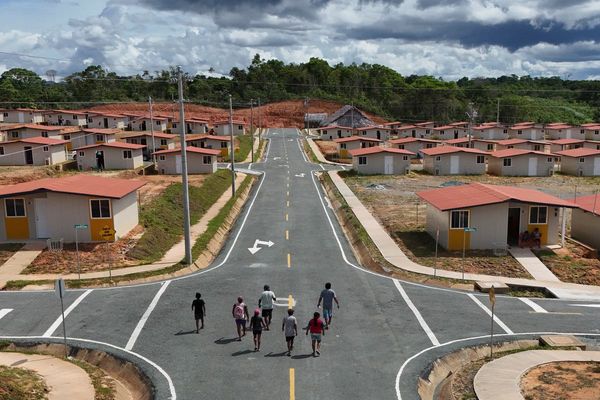
The election commission of Pakistan is facing accusations of using a controversial exercise to redraw the voting map in order to favour the return of former prime minister Nawaz Sharif to power, amid allegations of pre-polling rigging and increasing doubts over the fairness of the coming general elections.
The process of amending constituency borders, known as delimitation, follows on from a census that was recently carried out, which was marred with controversies.
A record 1,300 objections have been raised across the country over the proposed changes to constituencies by the election commission, including over the merging of the Balochistan districts of Harnai and Sibi into a single constituency, despite them being 400 km apart with no road connections and stark climate, culture and demographic differences.
The election date was delayed from November to February next year on the pretext of waiting for the census results, though political opponents have alleged the delay was to give more time to three-time former prime minister Sharif to return from exile in the UK and prepare to run again in the elections.
Sharif is said to be the favoured candidate of Pakistan’s all-powerful military who have long played kingmakers in general elections. Sharif’s Pakistan Muslim League-Nawaz (PML-N) party has denied favourable treatment.
More than 80% of petitions reportedly accused the delimitation committee of favouring certain people, groups and parties, and further increasing doubts over free and fair elections. The final decisions will be announced on 30 November.
The monitoring group Free and Fair Election Network has also raised serious objections over the preliminary delimitations and said that more than one-fifth of the proposed constituencies did not conform to the regulations on voter numbers.
Deenar Domki, a politician from Balochistan, has objected to the merging of the Harnai and Sibi districts and alleged that the constituency borders were being altered to favour former minister Noor Muhammad Dumar, who recently joined Sharif’s PML-N party. He claimed Dumar was the “main beneficiary of this unjust demarcation”, pointing out that some voters would have to cross five districts in order to vote or participate in local campaigning.
Domki accused the election commission of accepting bribes and said decisions had been made “in a closed room with no information about geography, cultures and demography of constituencies”.
“This is pre-poll rigging,” said Donki. “With such measures, there can’t be free elections.”
Many accused the election commission of redrawing the map in order to directly undermine the support of Pakistan Tehreek-e-Insaf (PTI), the political party of ousted prime minister, Imran Khan, which is still hugely popular among voters.
Khan was brought to power in 2018 with the backing of the military, and his election faced similar allegations of vote-rigging. However, after Khan’s relationship with the military establishment soured, he was toppled from power in 2022. After Khan began publicly criticising top military leadership, including accusing them of trying to assassinate him, he was eventually imprisoned in August.
Khan is now facing about 200 court cases. The current caretaker government, which is largely seen to be controlled by the military, took the highly unusual decision that Khan would be tried behind closed doors in prison, in what appeared to be a bid to prevent his trial drumming up further political support.
Despite the Islamabad high court reversing this decision, this week Khan was not presented in the court as scheduled, with the government alleging it was due to “threats on his life”.
Figures from PTI accused the election commission of using the delimitation exercise to target Khan’s stronghold region of Khyber Pakhtunkhwa province where the party has ruled for over a decade, and favour a newly formed party that will directly challenge PTI.
In recent months, senior PTI leaders have already faced arrest and harassment and members of the party have accused the caretaker government of pre-poll rigging by preventing them from holding political rallies, as well as detaining and abducting workers and party leaders for months and forcing them to leave the party.
Figures from other major opposition parties also voiced concern at the election commission’s actions. Nadeem Afzal Chan, from the Pakistan People’s Party, said that constituencies were being redrawn even when there had been no marked change in population.
“What is the point of changing the demography of constituencies? It is clearly political engineering to benefit Sharif’s PML-N,” said Chan. “We can’t have free elections with such massive pre-poll rigging and such demarcations of the constituencies.”
Michael Kugelman, a senior associate for south Asia at the Wilson Center thinktank in the US, said that if the proposed delimitation goes ahead, it would create electoral disadvantages for those going up against PML-N, an indirect form of pre-election rigging. “How that process plays out will be an important part of the election story,” said Kugelman.
The spokesperson for the election commission said that the commission was hearing the appeals through an open court. “As far as preliminary delimitation is concerned, the commission has done it as per law. At the moment I can’t comment on it as delimitation is not yet finalised and officially published,” said the spokesperson.







